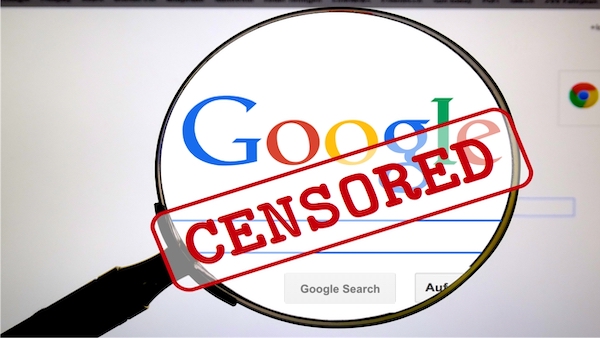Note: The missive below is but a thumbnail sketch of how – and why – moral virtue is not taught – even by the Church, in our society, although moral virtue is presupposed by the Constitution of the United States. Moreover, the sketch indicates – obliquely why dialectical discussions (we do not actually address dialectical discussions, but one may infer why such attempts would devolve to shouting matches…) are not employed – so as to attempt to establish common-ground – for conflict resolution among competing interests of individuals, groups, and organizations.
Christendom – as all worldviews – emerged organically through a synthesis of thinkers and view (particularly the views which animated the Hebrew, Greek, and Roman cultures) antecedent to the moniker “Christendom.” Christendom – as a cogent intellectual force – found its exemplary understanding via Saint Thomas Aquinas (1225-1274; Catholic priest philosopher-theologian), as he created a coherent synthesis of inconsonant views, each rendered consonant with Christianity. Aquinas was not attempting to create a worldview, he was interested in unveiling the truth i.e., God’s Will permeating His Creation.
Manifest from the work of Aquinas – and his progenitors – the view that came to be known as “Christendom” animated all of the Catholic Nations of Europe (All Europeans were Catholic because Catholicism is the Church from which all Christian faiths are derived…) and wherever Universities and Catholicism (Christianity) dominated. Even as Saint Thomas lived the Church was in turmoil – Augustinians abhorred Saint Thomas Aquinas (why is beyond the scope of this missive) – and Aquinas was often utilized by the Pope to quell disputes among the clergy; he was on his way to a conference when he died…
Roughly 50 years post Aquinas death (1274), William of Ockham (Franciscan friar, 1285-1347) presents the 1st major wound to Christendom (note: thinkers think; Ockham – as other thinkers – may have erred, but it doesn’t mean he intended harm…); that wound was followed by others from other thinkers – some attempting to repair perceived damage. Eventually, the effects of incoherent accretions having altered Christendom – as an animating view for the Church – Martin Luther (1483 -1546, Luther was a Catholic priest…) nails his 95 objections upon the door Of All Saint Church in (1517) Wittenberg, Germany. Luther’s real advocacy is separating Scripture from pagan Philosophy; thus, his Sola Scriptura. As a consequence not only is the Church divided, but theology and philosophy begin becoming “estranged,” and this leads to their eventual “divorce.” And this leads – eventually – to the University’s worldview (Christendom) inversion…
Those whom may wonder why “virtue” and objective moral codes are not taught – today, or have been taught for years – it is because virtue and objective moral codes (whether teleological – concerned with purpose i.e., final causation, or deontological – concerned with what actions are obligated) are viewed as absurdities vis-à-vis the University post-Christendom dominant worldview… It is reasoned that if there is no God, if humans evolved, then natural law is absurd, and all meaning is imposed temporarily by we hairless apes…
The alteration of the University worldview (by-the-way, it is ongoing…) did not occur over-night; it has taken centuries of slight error compounding slight error*, errors which were accompanied by – and seemingly inextricably intertwined – with many advances, particularly advances in the natural sciences. Many – likely most – conflate correlation and causation (thinking abandonment of Christendom allowed for the emergence and advance of modern science), but the correlation is non-essential i.e., accidental i.e., methodological science did not arise as a result of the abandonment of Christendom.
*Note: Saint Thomas Aquinas – in the opening line of his treatise: On being and essence quotes Aristotle, viz: “A slight initial error eventually grows to vast proportions…” Keep this in mind when one looks at the University today post its tacit embrace of Kantianism and subsequent derivatives…
Christendom laid the groundwork for modern science, but philosophy – post its ‘divorce’ from theology – still attempted to render a cohesive account** of that which is (existence), although many thinkers developed a distrust of the philosophy of antiquity and those affiliated with the Church*** and thus, scholasticism – rather than being re-examined for errors and corrected – was abandoned in favor of empiricism, skepticism, phenomenalism, idealism – particularly the “critical idealism” of Immanuel Kant…
** Philosophy – separated from theology – tends towards various forms of nihilism…
*** Scholasticism had become corrupt with incoherent accretions posited by epigones of their antecedent Masters i.e., those thinkers which followed Abelard, Anselm, Bonaventure, Albert Magnus, Aquinas and others – took the “car for a drunken joy-ride…” i.e., they rendered philosophy intellectually discordant) which led to its abandonment as an intellectual force…
In 1781 Kant**** publishes The Critiques of Pure Reason through which he hopes to effect a Copernican revolution (Kant’s predecessors presupposed knowledge was dependent upon and related to objective reality); Kant renders objective reality unknowable – ‘one may only know how things appear’ – and describes the conditions whereby the consciousness may impose consistent order upon what appears to the subjective mind. Kant’s Copernican revolution organically led to the inversion of the University through the gradual abandonment of Christendom – as the dominant worldview – and the gradual ascendancy of Christendom’s multi-faceted antithesis (i.e., variants of nihilism)…
**** Kant’s Critiques reduces everything to his a priori epistemology as he attempts to rescue philosophy from its incongruities as he assumes the inherent structure of human consciousness imposes a Euclidean Geometric description for space and causality which explains Newtonian physics regarding the interaction of objects in space. It should be noted that the Kantian Critique was shown to be contradicted by the objective reality Kant thought unknowable by Einstein’s General Theory of Relativity (space is curved) and by its inability to account for quantum electrodynamics…Note that the metaphysics of Saint Thomas Aquinas has no problem embracing modern science because it is actually Philosophy!
The University is from whence cultures are derived; cultures are “principles lived.” Consequently, whatever principles are embraced, promulgated and disseminated by the University are – to varying degrees – assimilated by the populace which is in-relation-with the University. The University worldview and principles – given they are not moored by an unchanging (unchanging regarding human nature and the moral law which should guide human relations) objective reality, is in continued flux. Thus we quote ourselves from above: “It is reasoned that if there is no God, if humans evolved, then natural law is absurd, and all meaning is imposed temporarily by we hairless apes…” And so, unless our society’s course be re-directed there is a sign post-up-ahead indicating our destination, viz: Dystopia.





















Join the conversation!
We have no tolerance for comments containing violence, racism, vulgarity, profanity, all caps, or discourteous behavior. Thank you for partnering with us to maintain a courteous and useful public environment where we can engage in reasonable discourse.